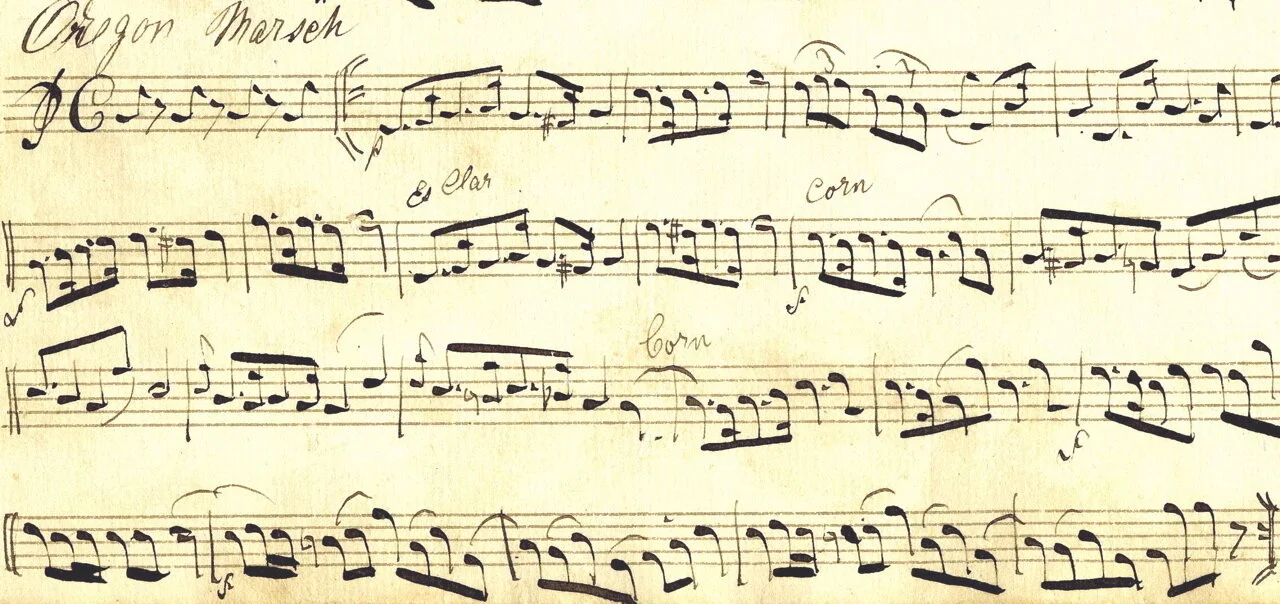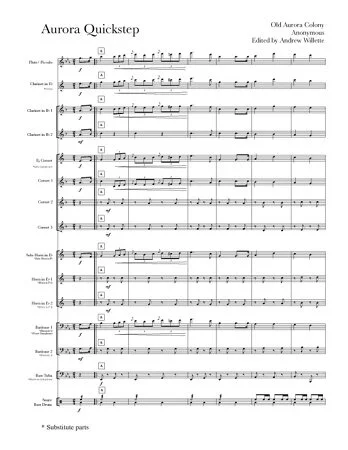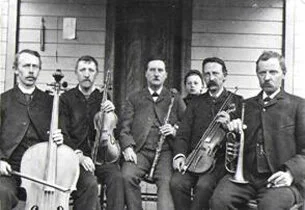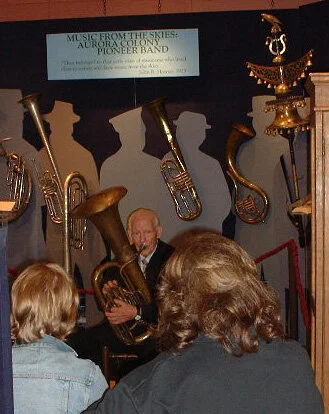The Aurora Colony Brass and Strings
Music
Passion, Excellence and Regional Fame
The Aurora Colonists were best known by nineteenth century Oregonians for their music. The Aurora society was numerically strong enough to boast two bands and several orchestra groups. Music to them was both a joy and a form of worship and every gathering was enlivened with folk songs and instrumental music.
The Aurora band often took first prize in brass band competitions, and they were much in demand for fairs, political rallies, and ceremonial functions.
Ben Holladay’s First Choice
Railroad promoter Ben Holladay hired the Aurora band in April 1869 for a 16-day trip into the Puget Sound for performances at Victoria and Seattle. Harvey Scott, editor of The Oregonian, who was a guest of Holladay wrote: “We left Portland with flying colors. The Aurora band on board our boat playing lively airs, everyone being in a state of happy expectation. Our party with this band visited all chief points of the Puget Sound contacting high officials and influential businessmen being anxious to interest them in Ben Holladay’s transportation scheme—the Oregon-California Railroad.”
Aurora’s band according to Scott’s assessment was “The best music organization in its time.”
A Patriotic Group
The Aurora Colony Pioneer Band was the headliner at the July 4, 1876, celebration of the American Centennial in Portland.
John Horner
In 1877 when the six graduates and 200 students of Philomath College learned that the Aurora Colony orchestra was furnishing music for their great day there was considerable rejoicing. John Horner, one of the graduates, later wrote that they “drew their music from the skies.” According to Horner, the Aurora Band was ”not excelled in the Pacific Northwest.”
The Teacher
Henry Conrad Finck was the great instructor for the Aurora Band. In 1847 he was a traveling representative for a German musical instrument distribution house and arrived in St.Louis with several boxes of musical instruments. While there, he met Christian Giesy of the Bethel Colony. Giesy told him that he could probably sell some instruments at Bethel, so Finck went there and remained to teach music. He later joined the migration to Aurora and Oregon. He could and did give lessons on any instrument.











